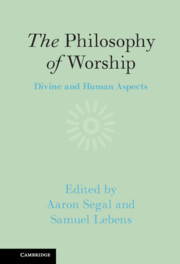Book contents
5 - Worship and Veneration
from Part II - What Is Worship?
Published online by Cambridge University Press: 09 January 2025
Summary
Various strands of religious thought distinguish veneration from worship. According to these traditions, believers ought to worship God alone. To worship anything else, they say, is idolatry. Yet many of these same believers also claim to venerate – but not worship – saints, angels, images, relics, tombs, and even each other. What’s the difference? Tim Bayne and Yujin Nagasawa (: 302) are correct that “it seems to be extremely difficult to distinguish veneration from worship.” Many have argued throughout history that veneration collapses into worship and that those who venerate saints or icons are guilty of idolatry. In this essay, we distinguish worship from veneration in two stages. First, we give a formal account of their difference. Drawing from St. John of Damascus (c. 675–749 AD), we argue that worship is a determinate of the determinable veneration. Second, we give more substantive accounts of both that explain both their differences and similarities. Drawing again from St. John, we argue that acts of veneration and worship signify subordination. Their difference, however, lies in the fact that worship alone requires absolute subordination.
- Type
- Chapter
- Information
- The Philosophy of WorshipDivine and Human Aspects, pp. 70 - 92Publisher: Cambridge University PressPrint publication year: 2025

